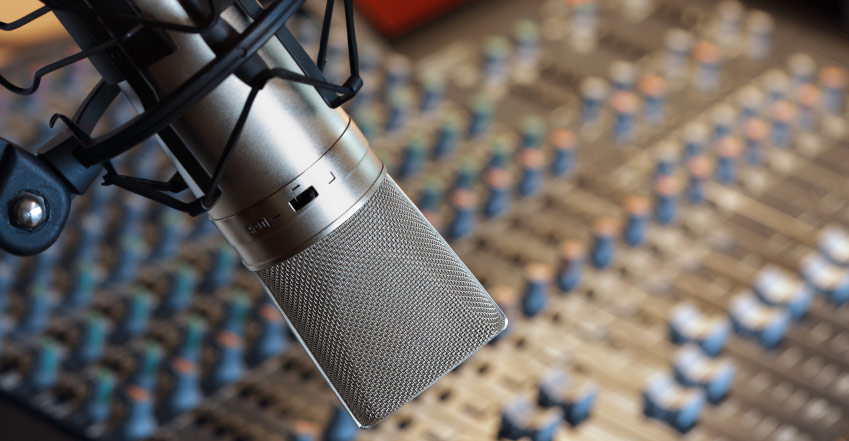Think about your favorite song … professional musicians write, compose, and perform it, but did you know that most songs have another key person working on it to make sure it sounds as perfect as possible (so it can get stuck in your head)? That person would be the audio engineer! “An audio engineer uses machinery and equipment to record, synchronize, mix or reproduce music, voices or sound effects. He or she can work in the movie, music recording, theater or video game industries. Audio engineers may also be called sound engineering technicians, sound editors, recording engineers or sound engineers.”[1] Check out the video below showing a day in the life of an audio engineer.
There are many paths one can take to become an audio engineer, but there are three main skill sets all audio engineers need to be successful. First and foremost, a good audio engineer needs a good ear for sound! They must hear every little note of an instruments or a person’s vocals to bring out the best sound possible. Want to take a fun test to see how old your ears are? Check out the video below (recommend using headphones!)
Next, an audio engineer needs to understand the science behind sound such as frequency, amplitude, wavelength, reflection, refraction, the human ear, perception, dynamics, and much more. There is a free audio online course that covers many of these topics. Visit it here!

 And last but not least, a strong understanding of computers and audio technology is needed to be successful. “With the advent of the digital age, it is increasingly important for the audio technician to understand software and hardware integration, from synchronization to analog to digital transfers. The majority of audio engineers use a software called ProTools. This is where they will enhance the audio, edit the best takes, organize several tracks of instruments and vocals, and export.” [2] ProTools is the industry standard software used by many audio engineers. This is where the magic happens! Everything recorded into the software can be edit, cleaned up, and/or enhanced with effects. Want to try your hand at ProTools? They have a free version called First that allows beginners a chance to record, edit, and mix music. Check it out here – http://apps.avid.com/ProToolsFirst/
And last but not least, a strong understanding of computers and audio technology is needed to be successful. “With the advent of the digital age, it is increasingly important for the audio technician to understand software and hardware integration, from synchronization to analog to digital transfers. The majority of audio engineers use a software called ProTools. This is where they will enhance the audio, edit the best takes, organize several tracks of instruments and vocals, and export.” [2] ProTools is the industry standard software used by many audio engineers. This is where the magic happens! Everything recorded into the software can be edit, cleaned up, and/or enhanced with effects. Want to try your hand at ProTools? They have a free version called First that allows beginners a chance to record, edit, and mix music. Check it out here – http://apps.avid.com/ProToolsFirst/
 Another important task of an audio engineer is to set up and maintain an ideal recording environment by checking that equipment is properly working and connected for optimum sound recording, and placement of suitable microphones to be able to record the performance in the best possible setting.
Another important task of an audio engineer is to set up and maintain an ideal recording environment by checking that equipment is properly working and connected for optimum sound recording, and placement of suitable microphones to be able to record the performance in the best possible setting.
With the accessibility of recording software, almost anyone can record at home. But attending a vocational program or university with an audio engineering focus will allow students the opportunity to properly train in the equipment and learn the professional skills needed to move further within the field. You can find a list of audio engineering schools here!
Interested in learning more? Here are more great resources:
Audio Engineering Society
Free Online Audio Tests
Careers in Music
————————–
Have a Computer Science career that you’re interested in knowing more about or one that you would like to share with us? If so, send us an email at socialmedia@robomatter.com and we may choose it for a future blog!
————————–
Work Cited:
[1] https://www.thebalance.com/audio-engineer-525988
[2] https://en.wikipedia.org/wiki/Audio_engineer
Image Sources:
- http://media.web.britannica.com/eb-media/61/114061-004-E7D2BD2B.gif